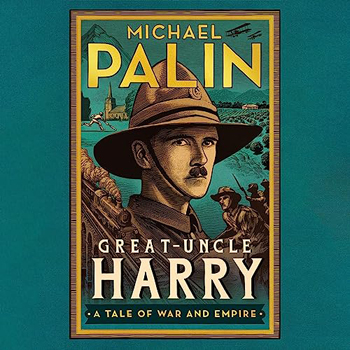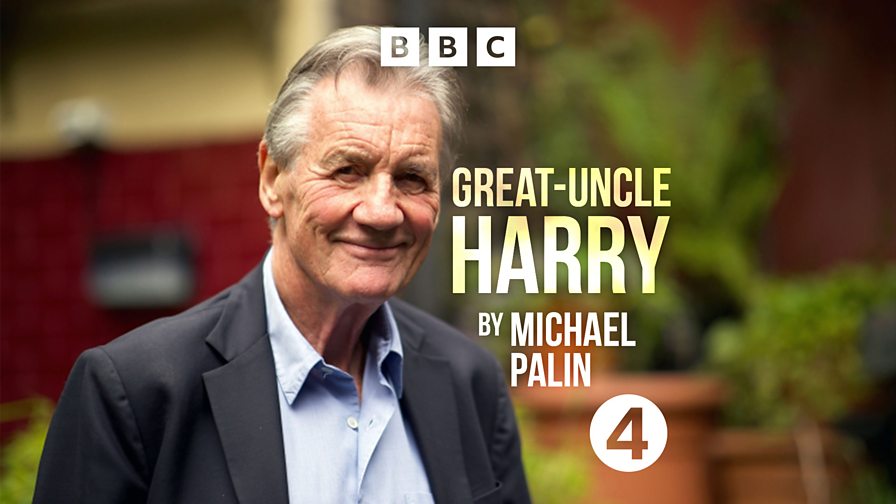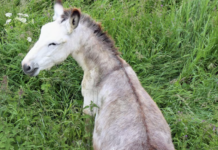Book review by Charles Gardner — 
Some years ago, I chanced upon a magnificent sight only a few miles from my home – a stunning viaduct carrying a disused railway over a wooded valley. It was a hidden gem I had no idea was there.
I have just finished reading a book which has had a similar effect on me, only more profoundly so. Great-Uncle Harry wasn’t a title that would normally have caught my eye even though I’m a big fan of Sir Michael Palin’s travel programs. But it was a Christmas present from my wife Linda.
It’s a tribute to a family member whose life did not seem to amount to much before he was killed in a bloody First World War battle, aged just 32 years and nine days.
But there was so much more to him, as the former Monty Python star discovered when he and his team of researchers delved ever deeper into a complex young life that spanned several continents.
Somewhat of an afterthought as the last of seven children to Michael’s great-grandparents, he was brought up in the expansive comfort of a West Country vicarage at the height of the Victorian age when all was at peace with the world – at least for well-heeled middle-class folk like him.
But Harry didn’t fit the stereotypical path mapped out for him. Somewhat restless and clearly not as clever as his siblings, he struggled to find his way in the world. Working on the Indian railways and, later, the tea plantations of Assam, did not bring out the best in him.
He returned to England and soon emigrated to New Zealand where he found friendship and support as a farmhand at the northern tip of the South Island.
But when war broke out in August 1914, he was among some 14,000 young Kiwis who immediately volunteered to fight and soon set sail for Europe, spending time in Egypt before moving on to Gallipoli on the Dardanelles, guarding the entrance to the Black Sea.
In a push against the Turks, his regiment was among the first to land – on April 25th 1915 – at what became known as ANZAC Cove where the Australian and New Zealand Army Corps lost tens of thousands of soldiers in long months of horrendous warfare in appalling conditions. Which is why the date, now known as ANZAC Day, is still marked each year as a solemn national day of remembrance.
Yet with fellow troopers slaughtered all around him, Harry emerged unscathed from that campaign. Fortunately for us, he kept a diary, mainly composed of terse, single-sentence entries giving little away. But I was moved by how, sometimes in the heat of battle, he would take the trouble to write thank-you notes to family and friends (including girlfriends) for the much-appreciated socks, chocolates and other parcels sent to keep up his spirits. A postcard from the Pyramids sent to his young niece in Norfolk was particularly moving.
When the Kiwi forces moved up to northern France, Harry’s heart was evidently lifted by the thought of being much nearer home – and he did manage a precious week’s leave while there.
By now a Lance Corporal, however, he was subsequently thrown into the horrors of the Somme where his luck finally ran out. Just as his regiment was being pulled back from the battlefield, he was apparently shot through the head as he peered above the trench, although exactly how he died remains uncertain, and his body was never found.
His great-nephew tells his story with extraordinary tenderness and sensitivity, along with a good injection of his legendary humor, always hoping to discover the best in him, and in the end not being disappointed.
In worldly terms, it might appear that Harry made little impression, but his life most certainly counted for something, and he died a hero. For we are all uniquely made and precious to God, who has a special purpose and loving plan for us all, caring for us even in the heat of our battles.
I’m not suggesting that Sir Michael shares this view, but I couldn’t help feeling an overwhelming compassion for Harry Palin, as if he was part of my family too.
I am in no doubt that he was very special to our heavenly Father, and there were at least two occasions when he expressed his trust in the Lord in his diary entries.
Part of the reason I identified so strongly with this narrative was because both my grandfathers – from South Africa and England respectively – fought at the Somme. Both survived, but not without sustaining lifelong injuries.
My South African ‘oupa’, also Charles, suffered the effects of poisoned gas, and my English grandad Geoffrey was seriously shell-shocked, quite likely the cause of his early death from a heart attack, aged 42, some 15 years before I was born. Charles was bedridden for the last ten years of his life, struggling to breathe as, whisky in hand, he would greet me with a friendly wave.
Though a man of few words, Harry made no secret of his eye for pretty girls, and it was so very sad that he was never able to marry despite having held a candle for the love of his life, Margie.
But this was no wasted life. Quite apart from the sacrifice he made for our freedom, his soul was forever precious to God. As King David put it in the Book of Psalms, “You knit me together in my mother’s womb. I praise you, for I am fearfully and wonderfully made… In your book were written all the days that were formed for me…” (Psalm 139, verses 13, 14 & 16).
As it happens, Michael Palin is vice-president of the National Churches Trust, which strives to preserve the great heritage of our churches in England.
Subtitled A Tale of War and Empire, this beautiful book is published in hardback by Hutchinson & Heinemann at £22 or available here




